|
City of Life and Death , directed by Lu Chuan, 2009, China
|
 Lu Jianxiong 陆剑雄, A military commander in the Nationalist Army who, during the Nanjing massacre in 1938, is killed along with close to three hundred thousand Chinese slaughtered by the Japanese invading army; he and his men put up a heroic fight and a losing battle against the advancing Japanese troops much superior in military equipment; unlike their superior officers who run away without a fight, Lu and his men decide to resist the Japanese invasion and fire upon the enemy until they are captured, outgunned and outnumbered; he is one of many that fell in the historical battle to defend Nanjing, which was then the capital of China after Beijing and Shanghai had fallen to the Japanese; after the city fell in December 13, 1937, six weeks of senseless massacre of the Chinese soldiers and innocent civilians took place; it is estimated that about 20,000 Chinese women were raped; Lu Jianxiong 陆剑雄, A military commander in the Nationalist Army who, during the Nanjing massacre in 1938, is killed along with close to three hundred thousand Chinese slaughtered by the Japanese invading army; he and his men put up a heroic fight and a losing battle against the advancing Japanese troops much superior in military equipment; unlike their superior officers who run away without a fight, Lu and his men decide to resist the Japanese invasion and fire upon the enemy until they are captured, outgunned and outnumbered; he is one of many that fell in the historical battle to defend Nanjing, which was then the capital of China after Beijing and Shanghai had fallen to the Japanese; after the city fell in December 13, 1937, six weeks of senseless massacre of the Chinese soldiers and innocent civilians took place; it is estimated that about 20,000 Chinese women were raped; |
 John Rabe 拉贝 (1882-1950)A German businessman and also a member of the Nazy Party who, at the time of Japanese occupation of Nanjing, was trying to stop the war atrocities by chairing the international committee of Nanjing Safety Zone, along with American and European missionaries and businessmen that tried to offer shelter to Chinese refugees; leaves the city when ordered by Berlin and feels he has let the refugees down whose lives depend on him staying in the safety zone;
John Rabe 拉贝 (1882-1950)A German businessman and also a member of the Nazy Party who, at the time of Japanese occupation of Nanjing, was trying to stop the war atrocities by chairing the international committee of Nanjing Safety Zone, along with American and European missionaries and businessmen that tried to offer shelter to Chinese refugees; leaves the city when ordered by Berlin and feels he has let the refugees down whose lives depend on him staying in the safety zone;
Jiang Shuyun, 姜淑云, A church school teacher and works closely with John Rabe to provide food and shelter to Chinese citi zens living in Nanjing; her efforts to resist every Japanese demand enrages the occupying force; after found cheating to get more Chinese civilians out of the death camp, she is no longer tolerated as a pacifist (after Rabe’s departure) and non-combatant; spared of raped and public execution when a Japanese soldier kills her as an act of mercy killing
zens living in Nanjing; her efforts to resist every Japanese demand enrages the occupying force; after found cheating to get more Chinese civilians out of the death camp, she is no longer tolerated as a pacifist (after Rabe’s departure) and non-combatant; spared of raped and public execution when a Japanese soldier kills her as an act of mercy killing
Tang Wenxiang 唐文祥 Mr. Rabe’s translator, able to speak Japanese and Germ an; he is a complex figure in the film; after his daughter and sister (a Shanghai opera singer) are killed by the Japanese, he goes through personal transformation from a coward who’d save his own life by telling the Japanese that there are wounded Chinese soldiers inside the International Safety Zone to a selfless martyr who gives his chance to life to his co-translator and chooses to be executed in his place;
an; he is a complex figure in the film; after his daughter and sister (a Shanghai opera singer) are killed by the Japanese, he goes through personal transformation from a coward who’d save his own life by telling the Japanese that there are wounded Chinese soldiers inside the International Safety Zone to a selfless martyr who gives his chance to life to his co-translator and chooses to be executed in his place;

Yuriko 百合子, one of Japanese comfort women that provide the troops with sex service, for which she receives more money than Chinese or Korean comfort women; she dies of malnutrition, starvation and sexually transmitted diseases;
Kadokawa, 角川正雄, a sergeant in the Japanese army, able to speak some English because as a small boy he attended church school, which gives him enough education to be self-reflective and have a moral conscience; loses his virginity to Yuriko whom he later refers to as his wife; he also loses his innocence and finally his sanity as the war goes on and incurs more senseless killing; so homesick and dehumanized by the barbarity of the war, he one day commits suicide to end his war within, because to him, “life is harder than death;”
a small boy he attended church school, which gives him enough education to be self-reflective and have a moral conscience; loses his virginity to Yuriko whom he later refers to as his wife; he also loses his innocence and finally his sanity as the war goes on and incurs more senseless killing; so homesick and dehumanized by the barbarity of the war, he one day commits suicide to end his war within, because to him, “life is harder than death;”
 Shunzi, 顺子one of the men that fight along with Lu Jianxiong when the city falls to the Japanese; survives the slaughter with his son and hide in the international safety zone where, after Mr, Rabe and his staff leave, he is captured again by the Japanese when recognized as a Chinese soldier; when about to be executed, he is set free by Kadokawa who then shoots himself; his son is Douzi, probably the youngest soldier in the resistence; Douzi also joins the battle to defend the city of Nanjing; captured with the rest of the fighting men and his father; but just like his father he also survives the massacre; Shunzi, 顺子one of the men that fight along with Lu Jianxiong when the city falls to the Japanese; survives the slaughter with his son and hide in the international safety zone where, after Mr, Rabe and his staff leave, he is captured again by the Japanese when recognized as a Chinese soldier; when about to be executed, he is set free by Kadokawa who then shoots himself; his son is Douzi, probably the youngest soldier in the resistence; Douzi also joins the battle to defend the city of Nanjing; captured with the rest of the fighting men and his father; but just like his father he also survives the massacre;
Xiao Douzi, 小豆子
|
 Xiao Jiang : 小江a Chinese prostitute who also happens to be in the refugeee camp; initially with little to no intention to resist the Japanese and refuses to cut her beautifal hair when told to to minimize the chance of rape; feels secure because of her confidence in her body and female beauty; realizes evil and brutality once she is raped, which also wakes her up as a Chinese patriot; she volunteers herself, along with other women, to “entertain” the Japanese troops in return for food and safety as promised to the refugee camp, the kind of self-sacrifice women often do to give protection to others; Xiao Jiang : 小江a Chinese prostitute who also happens to be in the refugeee camp; initially with little to no intention to resist the Japanese and refuses to cut her beautifal hair when told to to minimize the chance of rape; feels secure because of her confidence in her body and female beauty; realizes evil and brutality once she is raped, which also wakes her up as a Chinese patriot; she volunteers herself, along with other women, to “entertain” the Japanese troops in return for food and safety as promised to the refugee camp, the kind of self-sacrifice women often do to give protection to others;
 Japanese Sergeant, 伊田修, Kadokawa’s superior, responsible for many war crimes and atrocities after his troop enter into Nanjing; like Kadokawa driven to suicide by the insanity of the war, he is also a twisted human being trying to keep a strait face and a clear conscience as he rapes and kills with his men; Japanese Sergeant, 伊田修, Kadokawa’s superior, responsible for many war crimes and atrocities after his troop enter into Nanjing; like Kadokawa driven to suicide by the insanity of the war, he is also a twisted human being trying to keep a strait face and a clear conscience as he rapes and kills with his men;
|
 Li, Xiao-jun 黎小军, in his 20s, arrives at Hong Kong (HK) in search of a better life with thousands of other “mainlanders” who take advantage of China’s open-door policy in the 1980s; dazzled by the metropolitan life; works as a take-out restaurant deliver boy; meets and falls in love with a fellow expatriate named Li Qiao but marries his fiancee after she, Xiao Ting, joins him in HK in 1990; after his marriage falls apart, goes to the U.S. and works as a chef in a Chinese restaurant in NYC where he runs into Li Qiao one day;
Li, Xiao-jun 黎小军, in his 20s, arrives at Hong Kong (HK) in search of a better life with thousands of other “mainlanders” who take advantage of China’s open-door policy in the 1980s; dazzled by the metropolitan life; works as a take-out restaurant deliver boy; meets and falls in love with a fellow expatriate named Li Qiao but marries his fiancee after she, Xiao Ting, joins him in HK in 1990; after his marriage falls apart, goes to the U.S. and works as a chef in a Chinese restaurant in NYC where he runs into Li Qiao one day; Rosie, Xiao-jun’s aunt in HK; insists on being referred to as “Rosie”; lives with the fond memory of her American lover, William Holden, an American movie star who shot a couple of movies in HK; cherishes the memory till the day she dies of poor health; her puppy dog’s name is “Lucky”
Rosie, Xiao-jun’s aunt in HK; insists on being referred to as “Rosie”; lives with the fond memory of her American lover, William Holden, an American movie star who shot a couple of movies in HK; cherishes the memory till the day she dies of poor health; her puppy dog’s name is “Lucky”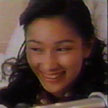 Fang, Xiao-ting, Xiao-jun’s fiancee and wife; a ballet dancer living in Tianjing, northern China; innocent and unsuspecting; a friend to Li Qiao who seems to want to help her but, when Xiao-jun confesses to his affections for Li Qiao, decides to leave him
Fang, Xiao-ting, Xiao-jun’s fiancee and wife; a ballet dancer living in Tianjing, northern China; innocent and unsuspecting; a friend to Li Qiao who seems to want to help her but, when Xiao-jun confesses to his affections for Li Qiao, decides to leave him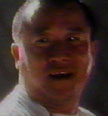

 Jeremy,
Jeremy, 
 Li Qiao, 李翘a girl from Canton, mainland China, who arrives in HK on the same train as Xiao-jun; avoids speaking Mandarin to conceal her identity as a Mainlander and passes herself off as a HK local resident by speaking only Cantonese and English; she meets Xiao-jun in a McDonalds fast food restaurant where she works; also sells songs of Teresa Tang, popular Taiwanese singer; buys stocks but loses her money; becomes a masseuse; when her romantic relation with Xiao-jun ends with his marriage, goes with her gangster boy friend to NYC where she works as a tourist guide and runs into her old flame one day after her husband is killed;
Li Qiao, 李翘a girl from Canton, mainland China, who arrives in HK on the same train as Xiao-jun; avoids speaking Mandarin to conceal her identity as a Mainlander and passes herself off as a HK local resident by speaking only Cantonese and English; she meets Xiao-jun in a McDonalds fast food restaurant where she works; also sells songs of Teresa Tang, popular Taiwanese singer; buys stocks but loses her money; becomes a masseuse; when her romantic relation with Xiao-jun ends with his marriage, goes with her gangster boy friend to NYC where she works as a tourist guide and runs into her old flame one day after her husband is killed; Lu Jianxiong 陆剑雄,
Lu Jianxiong 陆剑雄, 


 Yuriko 百合子, one of Japanese comfort women that provide the troops with sex service, for which she receives more money than Chinese or Korean comfort women; she dies of malnutrition, starvation and sexually transmitted diseases;
Yuriko 百合子, one of Japanese comfort women that provide the troops with sex service, for which she receives more money than Chinese or Korean comfort women; she dies of malnutrition, starvation and sexually transmitted diseases;
 Shunzi, 顺子
Shunzi, 顺子
 Xiao Jiang : 小江
Xiao Jiang : 小江 Japanese Sergeant, 伊田修, Kadokawa’s superior, responsible for many war crimes and atrocities after his troop enter into Nanjing; like Kadokawa driven to suicide by the insanity of the war, he is also a twisted human being trying to keep a strait face and a clear conscience as he rapes and kills with his men;
Japanese Sergeant, 伊田修, Kadokawa’s superior, responsible for many war crimes and atrocities after his troop enter into Nanjing; like Kadokawa driven to suicide by the insanity of the war, he is also a twisted human being trying to keep a strait face and a clear conscience as he rapes and kills with his men; John (played by Jeremy Iron), a British journalist with years of experience reporting Hong Kong’s politics, economy and people’s personal lives; consumed by his passion for truth, he is unaware that his identity and condescending attitude as a colonizer often get in the way of finding the real stories on this small island which are rapidly changing, especially around 1997 when it is time for Great Britain to hand over to China its former colony; in love with a Chinese girl by the name of Vivian; later diagnosed to have leukaemia which causes him to faint from time to time; as he lays dying, British hold on Hong Kong is also quickly vanishing and coming to an end;
John (played by Jeremy Iron), a British journalist with years of experience reporting Hong Kong’s politics, economy and people’s personal lives; consumed by his passion for truth, he is unaware that his identity and condescending attitude as a colonizer often get in the way of finding the real stories on this small island which are rapidly changing, especially around 1997 when it is time for Great Britain to hand over to China its former colony; in love with a Chinese girl by the name of Vivian; later diagnosed to have leukaemia which causes him to faint from time to time; as he lays dying, British hold on Hong Kong is also quickly vanishing and coming to an end;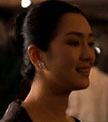 Vivian (played by Gong Li)
Vivian (played by Gong Li)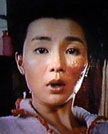 Jean (played by Magie Chang), a young girl with a scared face, born and raised in Hong Kong; makes a living by selling cameras and watches in the street; when approached by John for her personal story, tells lies about childhood abuse, incest, rape and prostitution, the exotic and sensational stuff she believes a Westerner expects to hear from a Chinese girl; when such self-misrepresentation is exposed by John, tells him about her past in which she tried to commit suicide after she was separated from her British lover when his father forged a goodbye letter to her because he did not like his son to be associated with Chinese; utterly devastated when later John brings to her old flame, who tells her he does not remember who she is;
Jean (played by Magie Chang), a young girl with a scared face, born and raised in Hong Kong; makes a living by selling cameras and watches in the street; when approached by John for her personal story, tells lies about childhood abuse, incest, rape and prostitution, the exotic and sensational stuff she believes a Westerner expects to hear from a Chinese girl; when such self-misrepresentation is exposed by John, tells him about her past in which she tried to commit suicide after she was separated from her British lover when his father forged a goodbye letter to her because he did not like his son to be associated with Chinese; utterly devastated when later John brings to her old flame, who tells her he does not remember who she is;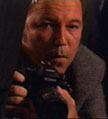 Rick, John’s friend and a newspaper photographer; interested in photographing all the interesting surfaces and appearances of Hong Kong that are fascinating to outsiders; his professionalism as a photographer drives him to be everywhere where history is being made by people he calls “human subjects”; often crashes at John’s apartment when having problems with girl-friends;
Rick, John’s friend and a newspaper photographer; interested in photographing all the interesting surfaces and appearances of Hong Kong that are fascinating to outsiders; his professionalism as a photographer drives him to be everywhere where history is being made by people he calls “human subjects”; often crashes at John’s apartment when having problems with girl-friends;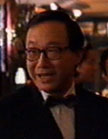 Mr. Chang, a successful businessman and a public figure originally sent to Hong Kong by the mainland, very rich but also very controlling; leads a double life; in public, he is for democracy and human rights; in private he wants to keep Vivian as his mistress as long as possible short of marrying her; agrees to take a wedding picture with Vivian to please her mother on the mainland but refuses to have his reputation sullied by marrying her as a former prostitute;
Mr. Chang, a successful businessman and a public figure originally sent to Hong Kong by the mainland, very rich but also very controlling; leads a double life; in public, he is for democracy and human rights; in private he wants to keep Vivian as his mistress as long as possible short of marrying her; agrees to take a wedding picture with Vivian to please her mother on the mainland but refuses to have his reputation sullied by marrying her as a former prostitute;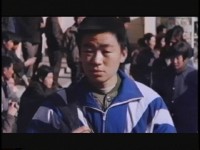 Yuan Fengming, a 16 year-old boy and a high school student living in China’s rural area, with father always away as a coal miner to support the family; in order to alleviate the financial burden, seeks works that would help pay tuition for himself and his younger sister; agrees to be “adopted” by two adult strangers so as to work in a coal mine as a relative of theirs; grateful for their kindness, he works his best in the mine to please his “Uncle” who seems to genuinely care for him; washes his hands before meals and reads before going to bed only to earn him scorn from his “guardians” and fellow coal-miners with no aspiration other than making money; reaches his puberty and needs initiation into the adult world; shocked by but survives the ugliness and human degradation in the real world;
Yuan Fengming, a 16 year-old boy and a high school student living in China’s rural area, with father always away as a coal miner to support the family; in order to alleviate the financial burden, seeks works that would help pay tuition for himself and his younger sister; agrees to be “adopted” by two adult strangers so as to work in a coal mine as a relative of theirs; grateful for their kindness, he works his best in the mine to please his “Uncle” who seems to genuinely care for him; washes his hands before meals and reads before going to bed only to earn him scorn from his “guardians” and fellow coal-miners with no aspiration other than making money; reaches his puberty and needs initiation into the adult world; shocked by but survives the ugliness and human degradation in the real world;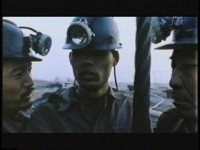 Mr. Yuan (middle) Fengming’s father; leaves wife and two kids (14 and 16) behind and works as a coal miner and sends money home whenever he can; misses his son terribly who needs money for his high school education; it is through the reference of two strangers that he comes to work in the mine, who introduced him as blood relative to one of them; brutally murdered by his “brother” deep at the dark bottom of the shaft; his death is viewed by mine bosses as a nuisance, who are willing to pay 30,000 yuan to his surviving “brother” as compensation for this accident that inconveniences them;
Mr. Yuan (middle) Fengming’s father; leaves wife and two kids (14 and 16) behind and works as a coal miner and sends money home whenever he can; misses his son terribly who needs money for his high school education; it is through the reference of two strangers that he comes to work in the mine, who introduced him as blood relative to one of them; brutally murdered by his “brother” deep at the dark bottom of the shaft; his death is viewed by mine bosses as a nuisance, who are willing to pay 30,000 yuan to his surviving “brother” as compensation for this accident that inconveniences them;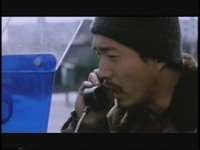 Song Jinming, a man in his 40s, married and with school age kids to support; joins his partner in crime to murder unsuspecting coal miners and collect compensation money as the relatives of the deceased; conscience tormented when realizing that Fengming, the target of their next scam, is still as child and none other than the son of Mr. Yuan whom they have murdered earlier; guilt smitten, he tries to postpone the time when he has to kill his “niece” only to arouse suspicion and bitter resentment in his partner hoping to see the boy turn into cash as soon as possible; changes his mind when the time comes for him to act and dies in the mine with his partner;
Song Jinming, a man in his 40s, married and with school age kids to support; joins his partner in crime to murder unsuspecting coal miners and collect compensation money as the relatives of the deceased; conscience tormented when realizing that Fengming, the target of their next scam, is still as child and none other than the son of Mr. Yuan whom they have murdered earlier; guilt smitten, he tries to postpone the time when he has to kill his “niece” only to arouse suspicion and bitter resentment in his partner hoping to see the boy turn into cash as soon as possible; changes his mind when the time comes for him to act and dies in the mine with his partner;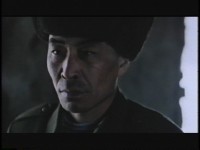 Tang Zhaoyang, also in his 40s with a family to support; feels perfectly at ease with murdering fellow coal miners; cries quite convincingly and on demand when pretending to have lost a dear “brother” that he just killed in cold blood like Mr. Yuan; has the eyes of a predator who knows every act of his business by heart, and has come to grips with what he must say and do to support his way of life that allows him to eat in fine restaurants and visit prostitutes in “massage parlors;” unscrupulous when it comes to killing the prey and says “I’ll get rid of anyone in my way;” the two con men and their existence as hard-core criminals remind us of Hollywood films such as Fargo and No Country for Old Men that reflect on American society in which many are driven by greed;
Tang Zhaoyang, also in his 40s with a family to support; feels perfectly at ease with murdering fellow coal miners; cries quite convincingly and on demand when pretending to have lost a dear “brother” that he just killed in cold blood like Mr. Yuan; has the eyes of a predator who knows every act of his business by heart, and has come to grips with what he must say and do to support his way of life that allows him to eat in fine restaurants and visit prostitutes in “massage parlors;” unscrupulous when it comes to killing the prey and says “I’ll get rid of anyone in my way;” the two con men and their existence as hard-core criminals remind us of Hollywood films such as Fargo and No Country for Old Men that reflect on American society in which many are driven by greed;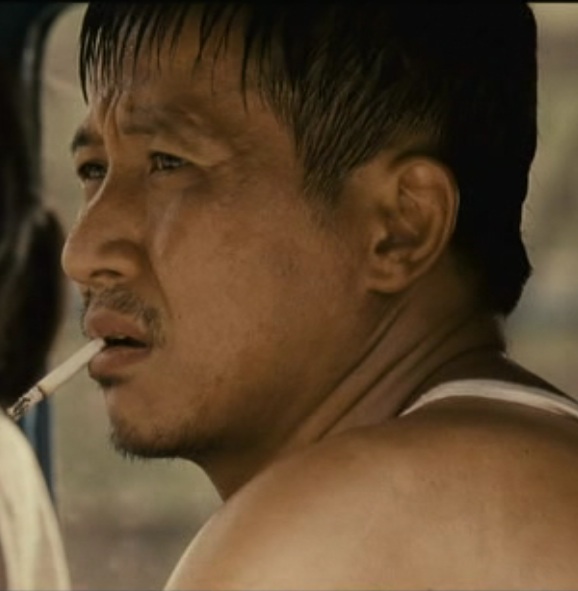 Fang Daqiang 方大强 A truck driver working for a state-owned factory; he used to serve in the People’s Liberation Army and settles in Tangshan where he is married to Yuanni instead of going back to Jinan, Shandong Province, where his sister and mother live; on the day of the Tangshan earthquake on August 28, 1976, Daqiang and his wife happen to be out in the open, away from the apartment in which their children are asleep; the quake lasts 23 seconds; in order to save their children, both parents try to go back into the apartment, however, Daqiang drags his wife back and risks his own life by going into the apartment complex; he is crushed to death when the building collapses; later his dead body is pulled out from under a pile of debris;
Fang Daqiang 方大强 A truck driver working for a state-owned factory; he used to serve in the People’s Liberation Army and settles in Tangshan where he is married to Yuanni instead of going back to Jinan, Shandong Province, where his sister and mother live; on the day of the Tangshan earthquake on August 28, 1976, Daqiang and his wife happen to be out in the open, away from the apartment in which their children are asleep; the quake lasts 23 seconds; in order to save their children, both parents try to go back into the apartment, however, Daqiang drags his wife back and risks his own life by going into the apartment complex; he is crushed to death when the building collapses; later his dead body is pulled out from under a pile of debris;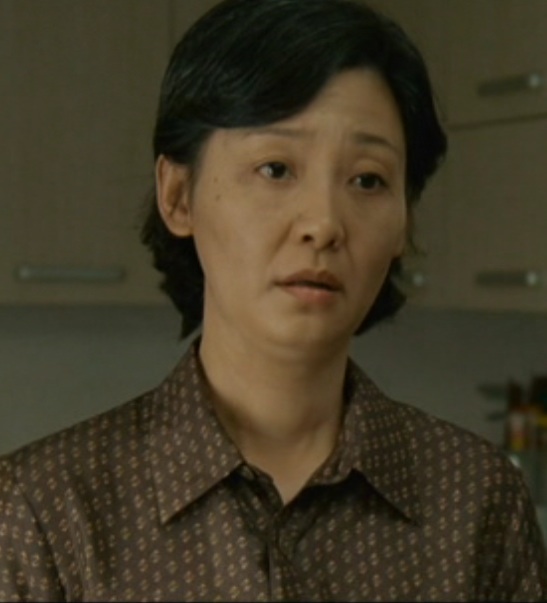 Li Yuanni, 李元妮, a native of Tangshan, wife to Fang Daqiang, in her 30s, employed at the factory where her husband works; uninterested in seeing other men after her husband dies trying to saves her life during the quake; also torment by her own sense of guilt; when asked by the rescuing workers if they should save her son or daughter, both pinned down beneath one huge cement slab, she decides to save her son, a culturally and politically correct choice in a patrilineal society; since both kids are either side of the slab, to save one would almost for sure cause the death of the other; while telling the rescue workers her decision, her voice is within the ear shot of her daughter still alive; it bothers her conscience in the past 30 years since the quake; as wife and mother, she refuses to move away from her old house, believing that the spirits of her husband and daughter will return one day; she does everything possible to bring up her son and sees to it that he lives a normal life
Li Yuanni, 李元妮, a native of Tangshan, wife to Fang Daqiang, in her 30s, employed at the factory where her husband works; uninterested in seeing other men after her husband dies trying to saves her life during the quake; also torment by her own sense of guilt; when asked by the rescuing workers if they should save her son or daughter, both pinned down beneath one huge cement slab, she decides to save her son, a culturally and politically correct choice in a patrilineal society; since both kids are either side of the slab, to save one would almost for sure cause the death of the other; while telling the rescue workers her decision, her voice is within the ear shot of her daughter still alive; it bothers her conscience in the past 30 years since the quake; as wife and mother, she refuses to move away from her old house, believing that the spirits of her husband and daughter will return one day; she does everything possible to bring up her son and sees to it that he lives a normal life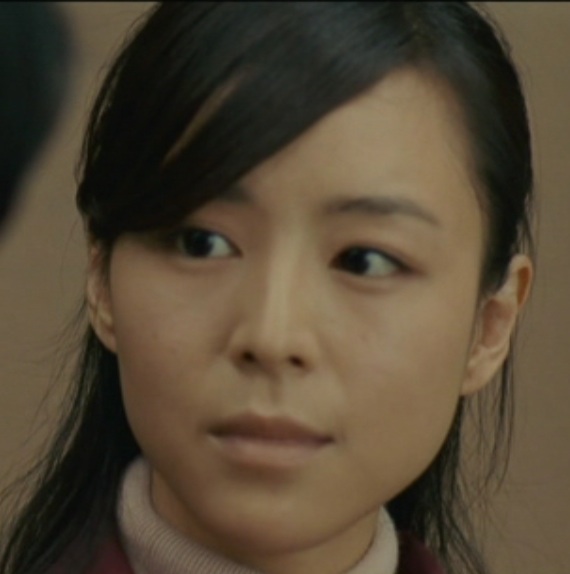 Fang Deng 方登: only 7 in 1976 but knows enough to know that her mother prefers and favors her twin brother who is born only 5 minutes after her; after the rescue workers take her out of the debris and lay her body along with all the dead, it starts to rain and she comes to, walking away from the dead; a year later she is adopted by a military couple of the People’s Liberation Army; forever haunted by her mother’s words, “save brother” which traumatize her for a long time, she does not want to return to Tangshan even when her foster-father urges her to do so; she keeps telling him she cannot remember the past when in fact she is unable to forget the moment when her mother decides to sacrifice her for her brother; becomes a medical student but abandoned by her boyfriend after she is pregnant at the age of 22; as a single mother with a daughter out of wedlock, she is out of touch with her foster-parents for years, and marries a Canadian man living in Vancouver; when earthquake strikes again in Wenchuan, Sichuan Province, in 2008, she felt compelled to return to China to help the quake victims and by chance meets Fang Da who is also one of the volunteer rescue workers; she finally meets her mother and makes peace with her because while in Wenchuan she sees a mother asking the rescue workers to cut her daughter’s leg so as not to expose them to further danger; then and there she understands the meaning of sacrifice as well as the choices that mothers often make;
Fang Deng 方登: only 7 in 1976 but knows enough to know that her mother prefers and favors her twin brother who is born only 5 minutes after her; after the rescue workers take her out of the debris and lay her body along with all the dead, it starts to rain and she comes to, walking away from the dead; a year later she is adopted by a military couple of the People’s Liberation Army; forever haunted by her mother’s words, “save brother” which traumatize her for a long time, she does not want to return to Tangshan even when her foster-father urges her to do so; she keeps telling him she cannot remember the past when in fact she is unable to forget the moment when her mother decides to sacrifice her for her brother; becomes a medical student but abandoned by her boyfriend after she is pregnant at the age of 22; as a single mother with a daughter out of wedlock, she is out of touch with her foster-parents for years, and marries a Canadian man living in Vancouver; when earthquake strikes again in Wenchuan, Sichuan Province, in 2008, she felt compelled to return to China to help the quake victims and by chance meets Fang Da who is also one of the volunteer rescue workers; she finally meets her mother and makes peace with her because while in Wenchuan she sees a mother asking the rescue workers to cut her daughter’s leg so as not to expose them to further danger; then and there she understands the meaning of sacrifice as well as the choices that mothers often make;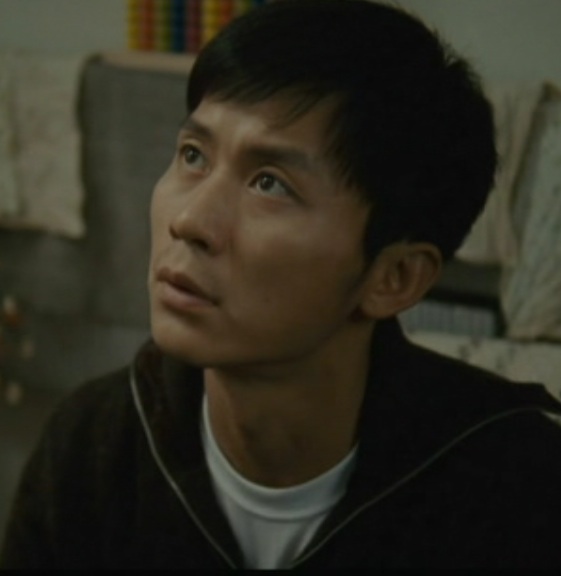 Fang Da 方达Fang Deng’s brother and twin, although survives the quake, his badly injured left army has to be amputated; driven by his strong filial piety and equally strong sense of gratitude for his mother’s love for him, he does his best to obey her and goes out of his way to please her; even as a amputee and disabled, he works his way up and becomes a well-to-do business manager; marries and has a son; when Wenchuan earthquake hits in 2008, he is one of the volunteer rescuers from Tangshan to help the quake victims, driven by human compassion and a sense of brotherhood with those who also fall victim of the quake like he did 32 years ago;
Fang Da 方达Fang Deng’s brother and twin, although survives the quake, his badly injured left army has to be amputated; driven by his strong filial piety and equally strong sense of gratitude for his mother’s love for him, he does his best to obey her and goes out of his way to please her; even as a amputee and disabled, he works his way up and becomes a well-to-do business manager; marries and has a son; when Wenchuan earthquake hits in 2008, he is one of the volunteer rescuers from Tangshan to help the quake victims, driven by human compassion and a sense of brotherhood with those who also fall victim of the quake like he did 32 years ago;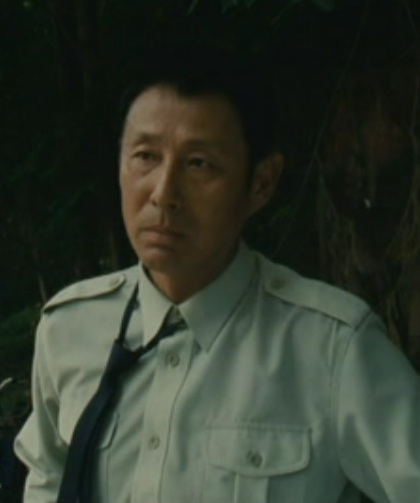 Wang Deqing, 王德清, a PLA officer and foster-father of Fang Deng, then an orphan and quake victim; he likes her the first time he sees her not for selfish reasons but out of compassion; the father-daughter bond is strong and he treats Fang Deng with love and respect, no less than with his biological daughter if he had one; often encourages his daughter to go back to Tangshan to find relatives if there are any left; he believes that people are connected by kindness and compassion; (in the novel, the step father is a child molester who rapes Fang Deng when she is 13.)
Wang Deqing, 王德清, a PLA officer and foster-father of Fang Deng, then an orphan and quake victim; he likes her the first time he sees her not for selfish reasons but out of compassion; the father-daughter bond is strong and he treats Fang Deng with love and respect, no less than with his biological daughter if he had one; often encourages his daughter to go back to Tangshan to find relatives if there are any left; he believes that people are connected by kindness and compassion; (in the novel, the step father is a child molester who rapes Fang Deng when she is 13.)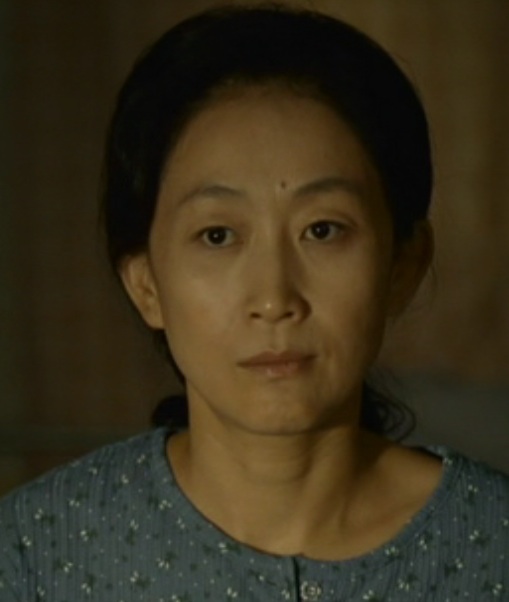 Dong Guilan, 董桂兰, Fang Deng’s foster-mother and wife to Wang Deqing, works as an army doctor; narrow-minded, selfish, and distrustful, fearing that Fang Deng would one day leave them after she goes away to study or work; even accuses her husband of molesting Fang Deng; she dies of cancer after making peace with both husband and daughter;
Dong Guilan, 董桂兰, Fang Deng’s foster-mother and wife to Wang Deqing, works as an army doctor; narrow-minded, selfish, and distrustful, fearing that Fang Deng would one day leave them after she goes away to study or work; even accuses her husband of molesting Fang Deng; she dies of cancer after making peace with both husband and daughter; Yang Zhi 杨志, Fang Deng’s boyfriend in college, a native of Hangzhou where the medical school is located; selfish and irresponsible; he wants Fang Deng to terminate her pregnancy because he is not ready to be a father; after she refuses his callous disregard of human life, he breaks off with her and goes to the U.S. to study and is never in touch with her or his daughter again; (in the novel he as a character steals Fang Deng’s creative writing and publishes it as his own.)
Yang Zhi 杨志, Fang Deng’s boyfriend in college, a native of Hangzhou where the medical school is located; selfish and irresponsible; he wants Fang Deng to terminate her pregnancy because he is not ready to be a father; after she refuses his callous disregard of human life, he breaks off with her and goes to the U.S. to study and is never in touch with her or his daughter again; (in the novel he as a character steals Fang Deng’s creative writing and publishes it as his own.) Xiao He 小河, Fang Da’s wife, trying to be agreeable in every way to both her husband and her mother-in-law; often unhappy with her husband more devoted to his mother than her; as a young mother, she has to agree to let her mother-in-law keep her new-born; she cannot compete with her mother-in-law unwilling to move to the south to live with them
Xiao He 小河, Fang Da’s wife, trying to be agreeable in every way to both her husband and her mother-in-law; often unhappy with her husband more devoted to his mother than her; as a young mother, she has to agree to let her mother-in-law keep her new-born; she cannot compete with her mother-in-law unwilling to move to the south to live with them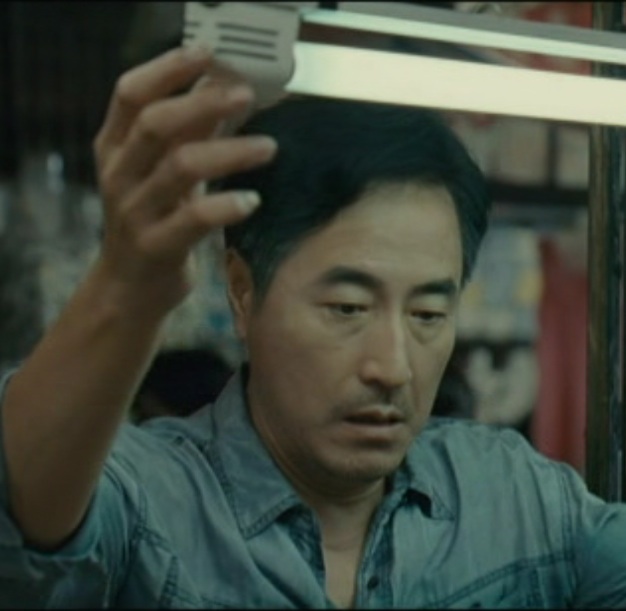 Lao Niu: 老牛, also a retired a factory worker and a handy man very good with electrical appliances; in love with Yuanni and pursues her for years; he always does favor for her, letting her make and receive phone calls to and from her son until she has her own phone; by confessing his love for her one night, he blows his chance to marry her and their friendship of many years;
Lao Niu: 老牛, also a retired a factory worker and a handy man very good with electrical appliances; in love with Yuanni and pursues her for years; he always does favor for her, letting her make and receive phone calls to and from her son until she has her own phone; by confessing his love for her one night, he blows his chance to marry her and their friendship of many years;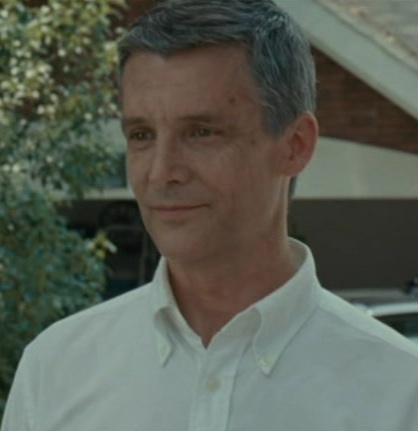 Alexander, Fang Deng’s Canadian husband, 16 years her senior, willing to marry her and accept her daughter by Yang Zhi; during the Wenchuan earthquake, he encourages his wife Fang Deng to return to China to help the quake victims;
Alexander, Fang Deng’s Canadian husband, 16 years her senior, willing to marry her and accept her daughter by Yang Zhi; during the Wenchuan earthquake, he encourages his wife Fang Deng to return to China to help the quake victims;